94 Countries That Don’t Require Covid Vaccinations For Travel
94 Countries That Don’t Require Covid Vaccinations For Travel
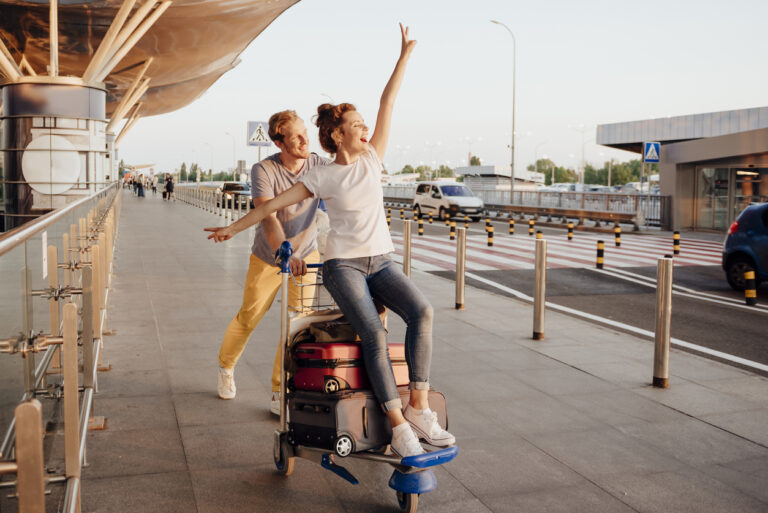
For travelers who have seen their free-movement rights denied due to the coronavirus pandemic, here is a list of countries that currently allow visitors to enter without a COVID-19 test or quarantine or with very few restrictions.
Also, find countries that have dropped all or most of their local Covid-19 restrictions.
Notice that governments can and will change entry restrictions depending on economic, political, and epidemiology factors. As of today, these are the ones welcoming back tourists, no questions asked.
Countries Without Covid Mandates (No Vaccine, No Test)
St. Maarten
The island will no longer require visitors to present proof of vaccination or a clean test result in order to access as of November 1.
Omar Ottley, the minister of tourism for St. Maarten, confirmed the information this week.
Visitors will only need to meet the “usual immigration and border control requirements to visit the island,” Ottley said.
After two and a half years of some of the strictest regulations in the world, Peru has now officially withdrawn all COVID-related restrictions, allowing for the return of regular tourism.
This means that after the notification that the country’s state of emergency has expired, people will once again be allowed to enter Peru without any restrictions.
Spain
Both EU and non-EU citizens will no longer need to present documentation of their vaccinations, recovery, or a COVID-19 test result in order to enter the country as of October 21, 2022.
The government website states: “All COVID-19 travel restrictions for travelers to Spain have been lifted. The rules that previously applied to travelers coming to Spain no longer apply.”
Ecuador
Ecuador removed the COVID-19 admission requirements on October 20, 2022. Prior to entering Ecuador, international tourists are no longer needed to provide COVID-19 vaccination cards or proof of a negative COVID-19 test.
Cambodia

The Covid 19 entry restrictions for incoming tourists will no longer be in effect, according to the Cambodian government. Previously, travelers were required to produce both a vaccination card and a health certificate proving that they had tested negative for Covid-19 within the previous 72 hours.
The decision was made in response to a request from Prime Minister Hun Sen, and it is effective right away.
“We have removed the requirement for all inbound travelers in all modes of transport: Land, waterways, and air. They no longer need to produce health certificates or show proof of full vaccination upon arrival,” said Minister of Health Mam Bun Heng in an October 3 announcement.
South Korea
South Korea ended testing on arrival for both vaccinated and unvaccinated travelers which means, no more entry restrictions remain as of October 1. This benefit applies to travelers whether vaccinated or not.
Lebanon
As of September 27, no Covid testing or vaccination documentation is necessary to enter Lebanon. The same goes for any need for quarantine.
Luxembourg
The Luxembourg Ministry of Foreign and European Affairs has stated that since October 1, all Covid-19 restrictions have been lifted.
Travelers are no longer subject to these entry restrictions, regardless of vaccination status. At the time of publication, Spain was the only country in Europe that imposes travel restrictions on foreign visitors.
Canada
Canada is the latest country to drop Covid-related travel restrictions. Canadian Government announced on Monday, September 26 that all the border entry rules along with mask mandates will be dropped as of October 1.
Barbados
Travelers will no longer be required to present proof of Covid-19 vaccination or to submit any testing in order to secure entrance regardless of vaccination status.
“This is the last step for us which reflects our position as fully open for business following the COVID-19 pandemic. We look forward to continuing to welcome visitors to our shores to experience all of the new and returning events slated for the rest of the year, and into early 2023.”
Thailand

From Oct. 1, authorities will no longer require travelers to present proof of vaccination or negative COVID-19 test results. People will also be able to attend crowded events without having to produce proof of vaccination. Officials announced that the nationwide state of emergency, which expired on September 30, will not be extended.
The current rules will be scrapped starting Oct. 1.
Panama
Panama will once again welcome tourists with no vaccine restrictions, no pre-departure tests, no post-arrival tests, and no quarantine once visitors arrive.
The country, in addition to loosening most visitor requirements, made a tiny step toward normalcy in July by eliminating the need that visitors wear face masks.
Turkey

Türkiye finally abolishes all health requirements for international tourists.
As confirmed by the Interior Ministry, international travelers no longer have to get tested or present other Covid-19 documents.
Previously, travelers who could not present a vaccination certificate when crossing the border were required to present a negative PCR test 72 hours before entry or a rapid antigen test within 48 hours of departure.
New Zealand
The government of New Zealand has announced that all COVID-19-related travel restrictions and testing requirements have been withdrawn.
Prime Minister Jacinda Ardern removed all vaccine restrictions, as well as the obligation to self-test after arrival, on September 13. Testing will now be “encouraged,” but not required.
“It’s time to safely turn the page on our COVID-19 management, and live without the extraordinary measures we have previously used,” Ardern said in a statement. “Today marks a milestone in our response. Finally, rather than feeling that COVID dictates what happens to us, our lives, and our futures, we take back control.”
Gabon
No entry Restrictions as of March 18, 2022
Georgia
Georgia is the latest country to abolish its Covid-related entry requirements.
The news was announced on June 15 by the Georgian Ministry of Foreign Affairs. Georgian authorities announced that international visitors entering the country will no longer be required to present proof of vaccination against Covid-19 or a negative Covid-19 PCR test.
This applies to both vaccinated and unvaccinated visitors.
Uzbekistan
Uzbekistan has joined a growing list of countries worldwide that lifted all COVID -19 entry requirements on June 8, 2022.
Kazakhstan
Kazakhstan is another country that will no longer require visitors to provide proof of vaccination or testing as of June 10, 2022.
Austria

Effective May 16, all travelers will be permitted restriction-free entry as the country has decided to lift all of its COVID-19 entry rules, authorities have announced.
“Travel to Austria is possible for touristic purposes. From May 16, proof of vaccination/recovery or a test is no longer needed,” the statement of the portal reads.
This news applies to all travelers regardless of their country of departure or origin.
France
This month, France lifted all of its Covid-19 travel restrictions and testing requirements for all travelers entering the country.
As of Aug. 1, 2022, it will no longer be necessary to present proof of Covid-19 recovery, vaccination or test results. It will also no longer be necessary to sign a certificate that you are free of Covid 19 symptoms.
For both vaccinated and unvaccinated, visitors no longer need to justify why they are traveling.
Malaysia
Malaysia has lifted all entry restrictions for overseas visitors, including testing and quarantine requirements.
As of August 1, visitors are allowed to enter Malaysia without filling out any Covid forms or getting tested, regardless of vaccination status.
There is still confusion about the removal of the travel form from the MySejahtera app, so travelers can still download the app. In light of recent headlines, vacationers are better off playing it safe.
Germany
According to German Health Minister Karl Lauterbach, certain travel restrictions imposed due to the pandemic will be suspended beginning June 1.
“Until the end of August, we will suspend the 3G rule on entry,” he told the Funke Mediengruppe newspaper.
Travelers must present a valid vaccination, test or recovery certificate to enter the country under the 3G regulation.
The rule will be repealed, at least for the summer season, as the frequency of Covid-19 infections in the nation has dropped dramatically.
Belize
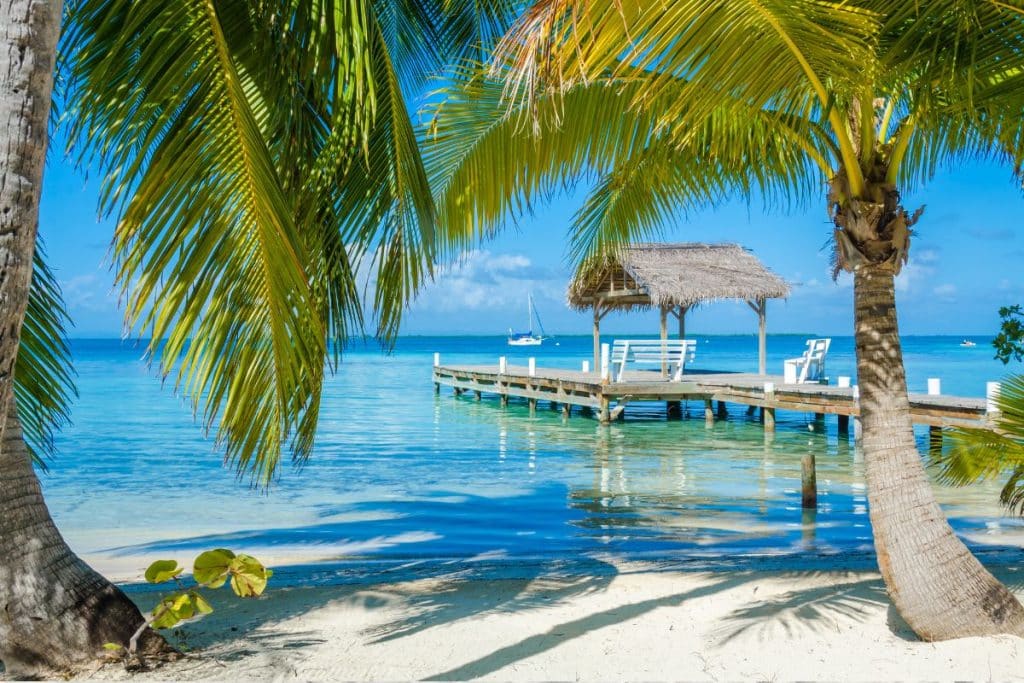
Belize has dropped all Covid-19 entry restrictions for international travelers. The move means that visitors no longer need to present proof of vaccination or a negative Covid-19 test taken shortly before departure to the Central American country.
Kevin Bernard, the minister of health and wellness for Belize, told reporters that “with the emergence of weaker variants of COVID-19 and with the global trend of restrictions being relaxed, the time has come to take the pressure off of our health systems,”
“We’ve reached a level where it’s now everyone’s personal responsibility to decide whether they want to be vaccinated or not.”
Cyprus
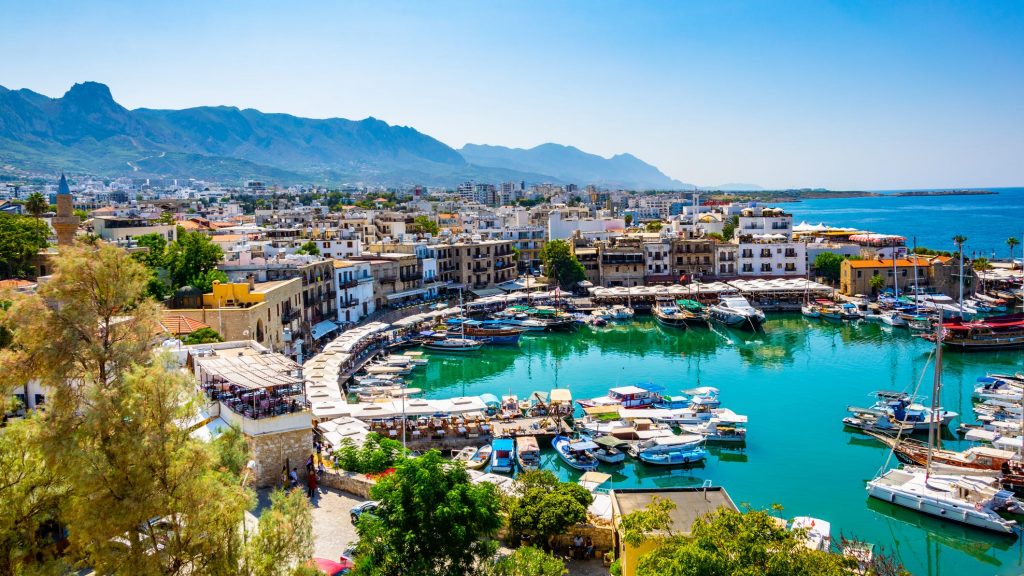
According to the Cypriot government on Friday, travelers to Cyprus will no longer have to present a valid COVID -19 vaccination or a recovery certificate, nor will they have to present a negative COVID -19 test from June 1 to enter the country.
The government has also decided to abolish the requirement to wear face masks in all indoor places in Cyprus from June 1, with the exception of hospitals, nursing homes and other indoor medical facilities.
Israel
As of Saturday, May 21, Israeli and foreign travelers will no longer be required to take a PCR test upon arrival at Ben Gurion Airport, according to the Ministry of Health.
Israeli and foreign travelers will also no longer have to present a negative test result before boarding a flight to Israel.
According to the Health Ministry, the restrictions were changed due to the drop in COVID -19 morbidity and apply to all land and sea crossings.
Travelers will still be required to complete a health declaration within 48 hours of the flight.
Latvia
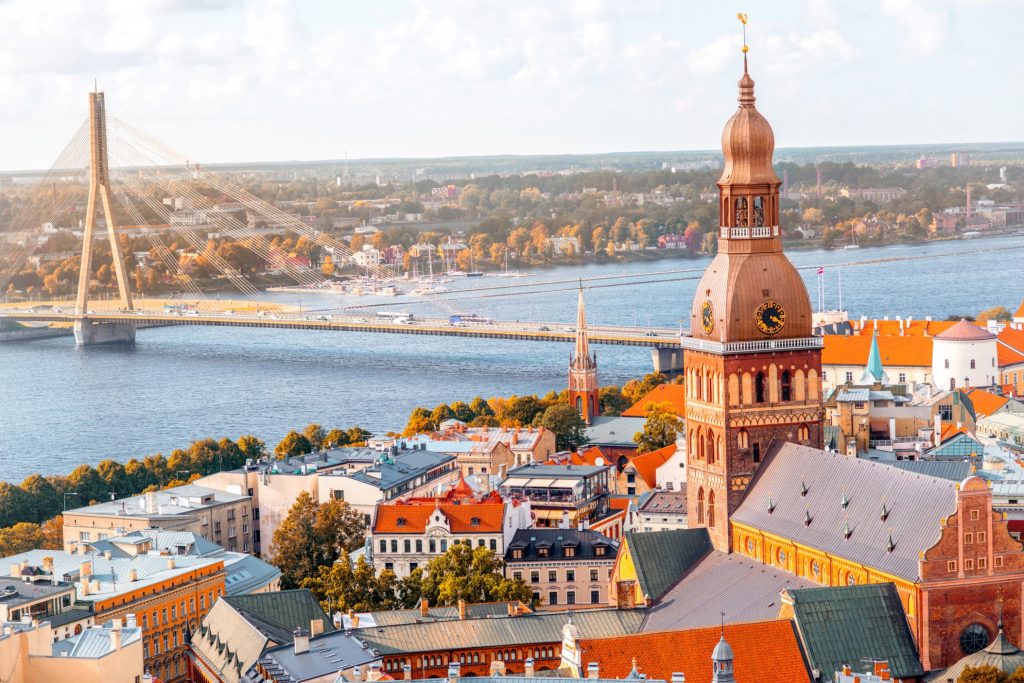
As of April 1, 2022, visitors to Latvia will no longer be required to provide a vaccination certificate, undergo testing or quarantine, or fill out the passenger locator form.
Grenada
Grenada has lifted all Covi-19 entry restrictions for vaccinated and unvaccinated travelers since May 1.
The decision means that travelers to the country no longer be required to present a Covid-19 test, proof of vaccination, or undergo quarantine.
“Conditions allow us to proceed with the suspension of the protection measures put in place from May 1st,” said the minister.
Bonaire
Visitors to Bonaire no longer need a negative PCR test or evidence of vaccination or recovery to enter the island.
Between 24 and 12 hours prior to departure, all international tourists will be asked to fill out a health declaration, form that can be found here.
The document must be digitally signed and sent to the authorities of Bonaire.
Slovakia
Slovakia is one of the most recent countries in Europe to remove all pandemic restrictions.
Travelers will no longer be required to take a Covid 19 test, fill out a registration form, or provide proof of vaccination before entering the country.
Czech Republic
The Czech Republic has also dropped all entry restrictions for overseas arrivals.
The new rules went into effect on April 9, according to the local news outlet Prague Morning.
Iceland
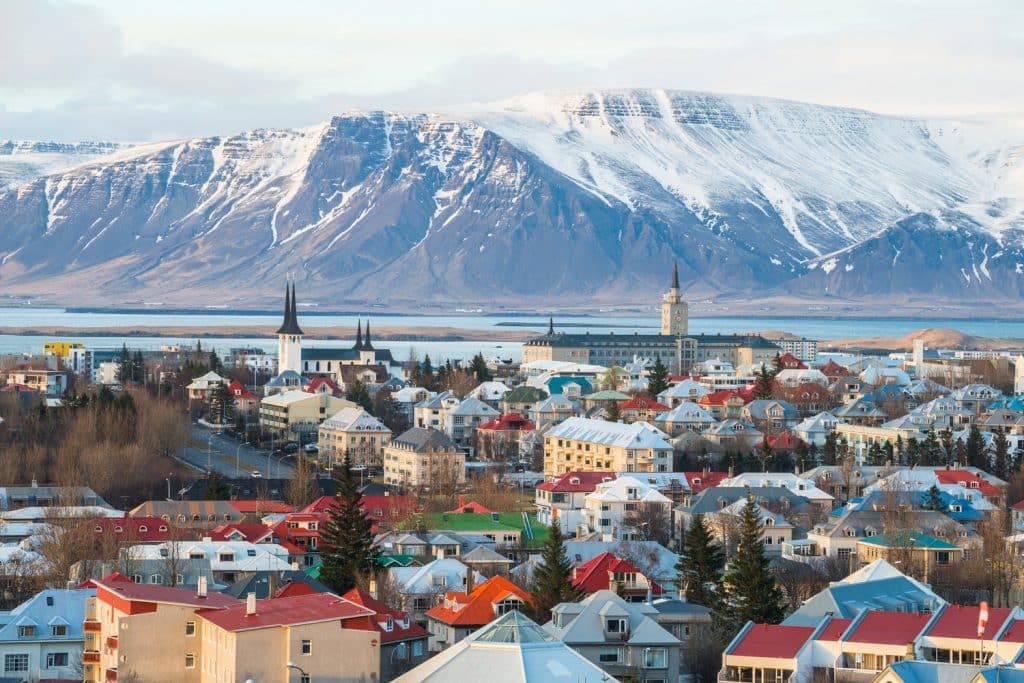
Reykjavik the capital city of Iceland.
Iceland has lifted all Covid-19 entry restrictions. Now anyone can enter Iceland, regardless of vaccination status. They have also eliminated all testing, quarantines, and online health forms for entry.
The mask requirement has also been abolished.
Saudi Arabia
Saudi Arabia has lifted most of its entry restrictions. Visitors no longer have to provide proof of vaccinations or tests or undergo quarantine.
Online health forms, proof of travel health insurance, and a contact tracing app are still required.
North Macedonia
Northern Macedonia has for the second time lifted all entry restrictions from April 21, 2022. Hopefully, the new entry policy will remain as they are.
Lithuania
Starting May 1, travelers will no longer face quarantines, proof of vaccination, recovery or have to present proof of a negative Covid-19 test to enter Lithuania.
Lithuania’s neighbors Latvia and Poland have also removed their entry requirements as well.
The mask mandate was removed in public transport.
Armenia

As of May 1, proof of vaccination, negative tests, or other entry requirements no longer apply when entering Armenia.
Kyrgyzstan
Kyrgyzstan is lifting all travel requirements as of May 1, 2022. Proof of vaccination or negative tests will no longer be required for entry, and the visa-on-arrival program has been reinstated.
Liechtenstein
Liechtenstein follows Switzerland’s border rules and therefore also lifted all entry requirements and travel rules as of May 1 to emulate its neighbor.
Kuwait
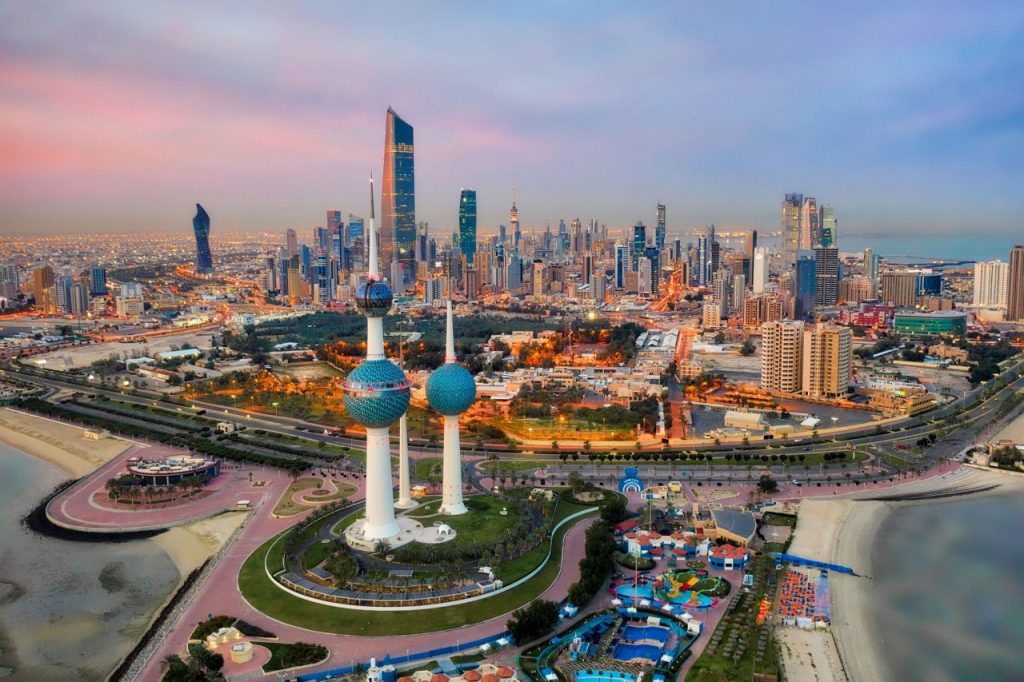
Kuwait has lifted all entry requirements as of May 1. Travelers no longer need to provide proof of vaccination or negative testing.
Serbia
Serbia lifted all border and entry rules on May 3, 2022. No tests or proof of vaccination are required for entry.
Gibraltar
Entry to Gibraltar is now free of restrictions
Chile
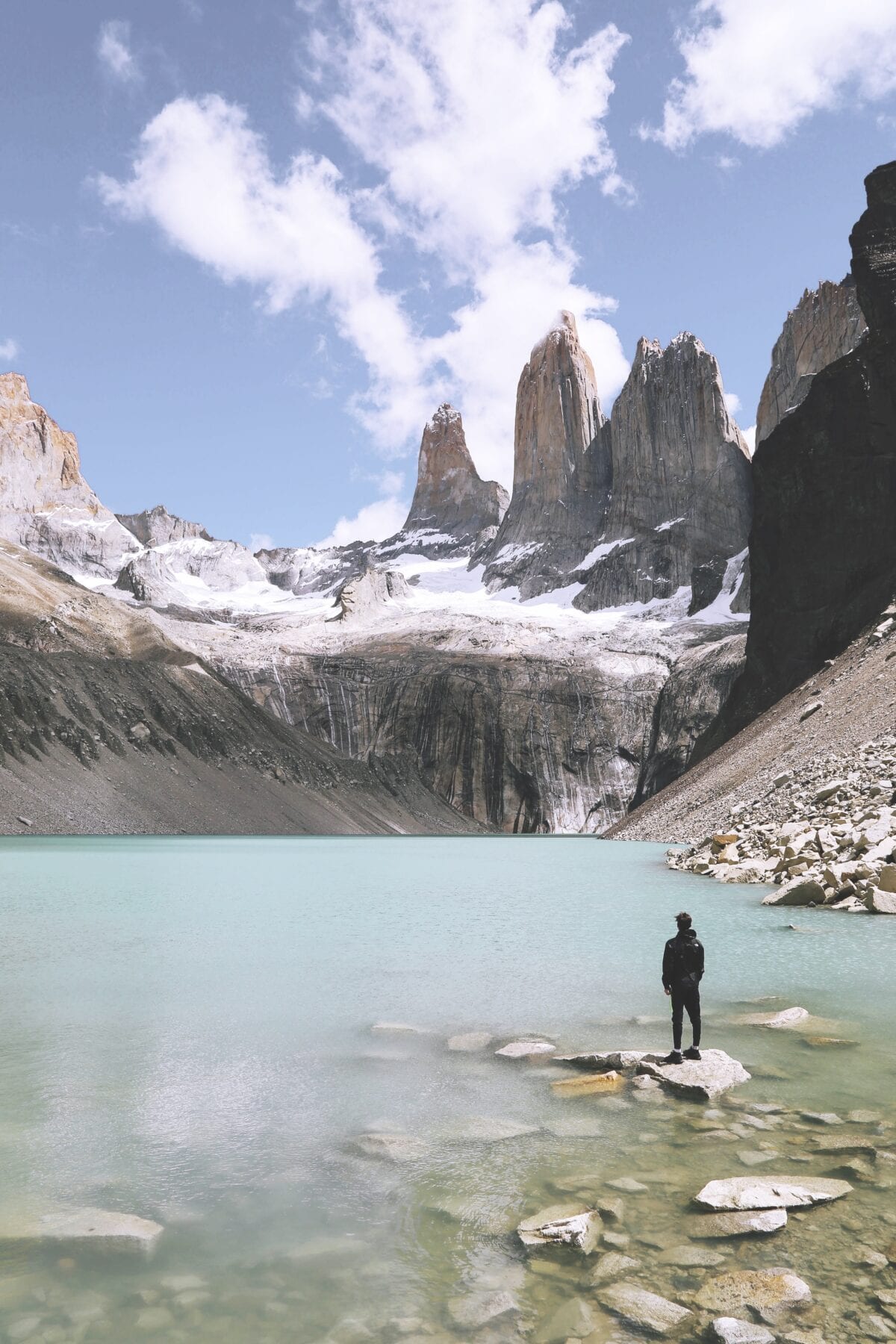
Chile is another South American country ready to drop testing and vaccination entry rules. From April 14 all travelers can enter without covid mandates but local restrictions still apply.
Greece
Health Minister Tanos Plevris announced in Delphi, where the VII Foro Economico is being held, that all visitors will be allowed to enter Greece without testing restrictions from May 1 until September regardless of their vaccination status.
“Conditions allow us to proceed with the suspension of the protection measures put in place from May 1st,” he said.
Mauritius
Beginning on July 1, 2022, there will be no longer be any requirements to enter the African island nation of Mauritius. Face masks and restrictions on public gatherings were also lifted, with the exception of hospitals and public transportation.
Tobago and Trinidad
As of July 1, 2022, Trinidad and Tobago will no longer have any entry requirements. Prior to the most recent need for a 48-hour test, T&T was one of the strictest countries throughout the whole pandemic.
Jamaica
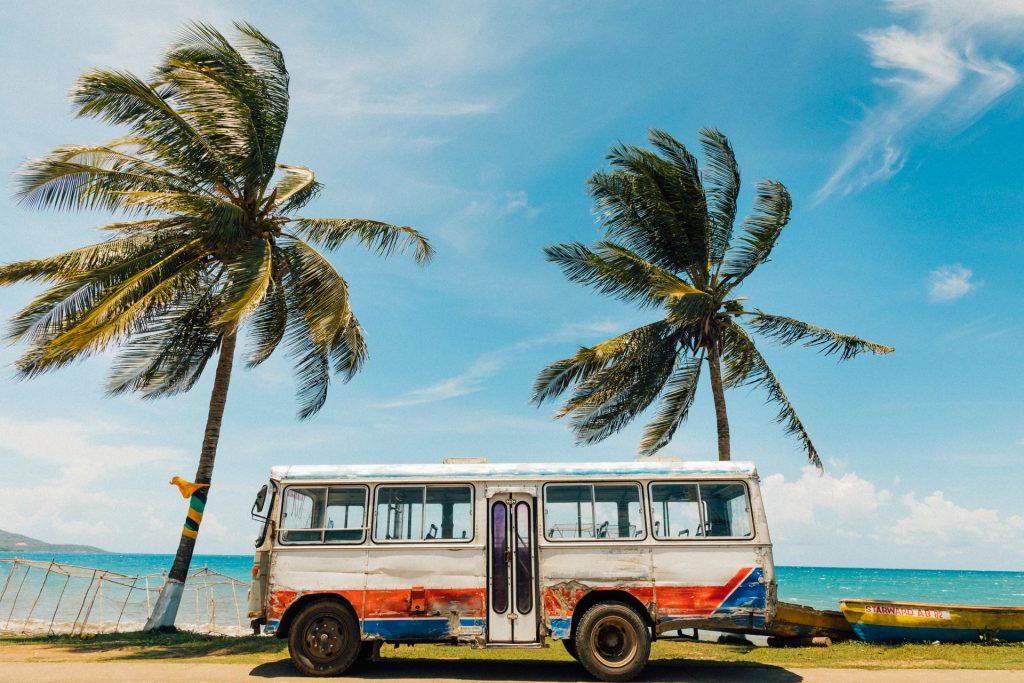
Jamaica will drop pre-departure Covid-19 testing for all, vaccinated and unvaccinated visitors starting April 16.
“We’re optimistic that these will serve to increase the appeal of Jamaica as a premier destination and keep us moving toward a stronger recovery for the tourism sector and our economy as a whole,” said Edmund Bartlett, minister of tourism.
Aruba
As a Caribbean local media outlet reports, the Dutch Caribbean island of Aruba has lifted all pandemic-related entry requirements for visitors.
This means that travelers no longer need to provide proof of vaccination or a negative test to enter the country.
However, travelers must still complete an embarkation/disembarkation card before arriving in Aruba.
New Zealand
New Zealand lifted all COVID-entry restrictions on June 20.
This means that travelers to New Zealand are no longer required to take a COVID -19 test prior to arrival, nor are they required to complete the New Zealand Travelers’ Form.
Unvaccinated visitors are now allowed to transit through the country.
However, all travelers to New Zealand must be fully vaccinated against COVID -19, apply for a travel visa, and meet the post-entry testing requirements.
Travelers who exhibit symptoms of COVID -19 during travel now have two options to prove they do not have COVID -19: They can present a negative test result or a certificate from a physician explaining why it is unlikely they have the virus.
Argentina
Argentina is the latest country to drop Covid entry restrictions for travelers. Restrictions will be phased out within the next few days and weeks, announced the Argentinian government.
Curaçao
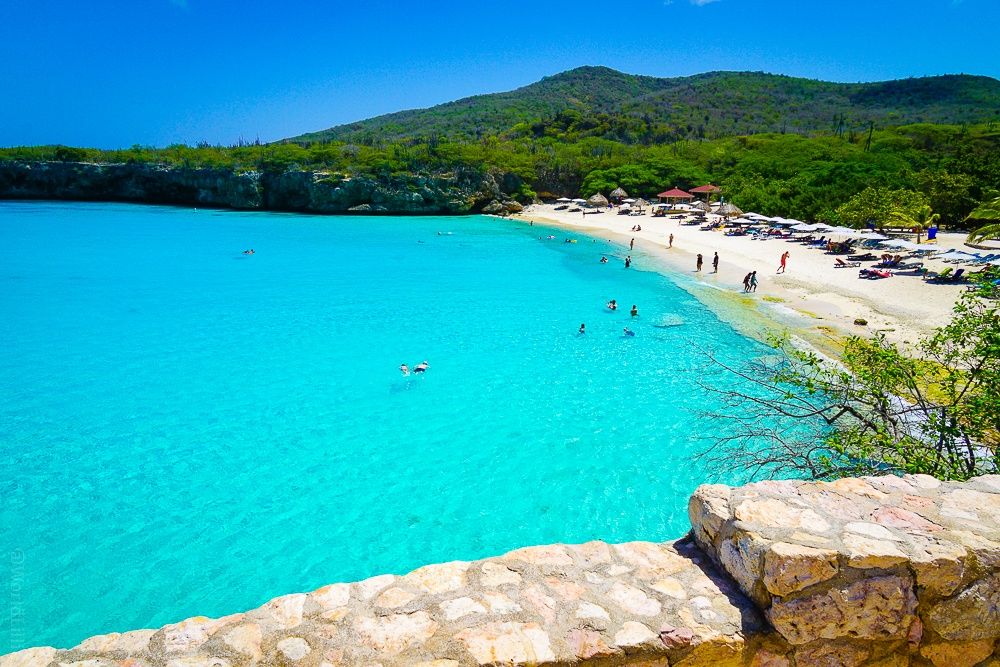
Beach in Curacao
The Curaçao Tourist Board (CTB) said in a statement that inbound passengers no longer need to show proof of a negative COVID -19 test or a vaccine certificate to enter this Caribbean island.
Authorities have also removed the night curfew, mask mandate and proof of vaccination for large-scale events.
“Globally, we are seeing a shift from pandemic to endemic, and while the safety of our travelers will always be a top priority, we’re thrilled to have adapted our entry requirements and measures to align with the evolving travel environment,” said Hugo Clarinda, CTB’s deputy CEO.
Poland
Poland has dropped all Covid-related entry requirements, including the requirement to wear a mask indoors and the need to self-isolate when infected with Covid-19.
Therefore, anyone entering Poland, whether from an EU or non-EU country, no longer needs to provide proof of COVID -19 – vaccination, recovery or test certificate to be granted entry.
Denmark
Those traveling to Denmark are no longer required to present a vaccination, recovery, or test certificate upon entry, regardless of the reason for the visit.
All travelers from the EU/Schengen area may also visit Denmark without restrictions. As of March 1, 2022, travelers from the EU/Schengen area may enter Denmark without having to present proof of a negative Covid-19 test.
Sweden
Overseas visitors to Sweden will no longer be subject to entry requirements as of April 1.
Furthermore, the Swedish government has announced that the ban on entry for travelers from outside the EU/EEA (European Economic Area) will not be extended.
Slovenia
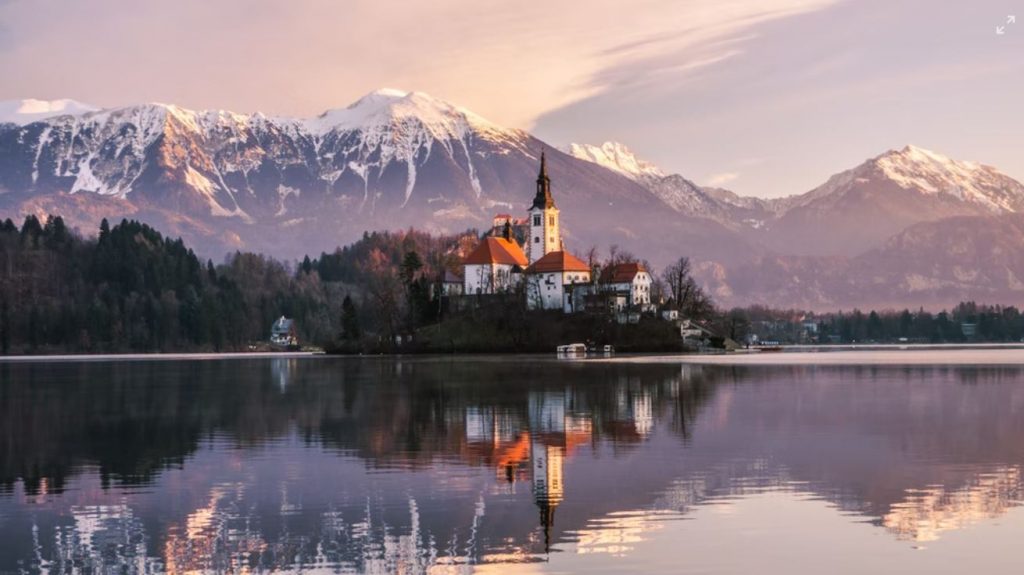
Proof of vaccination or a negative Covid test is no longer required to enter Slovenia. Most services no longer require people to be RVT (recovered, vaccinated or tested).
This includes activities such as tourism and hospitality, trade fairs, cultural and sporting events, congresses, visits to public institutions such as museums and galleries, ski resorts, public transportation and other activities.
Grenada
Grenada said Tuesday that various restrictions under Quarantine COVID regulations will be lifted, making travel to this Caribbean country a lot easier.
All passengers traveling to Grenada will no longer be required to undergo Covid-19 testing, complete a health declaration form prior to or upon arrival, or undergo quarantine.
Mongolia
Mongolia has removed all Covid-19 restrictions. Negative Covid-19 PCR testing before and after arrival is no longer required for overseas tourists.
The Mongolian-Chinese border will be closed until further notice.
Montenegro
Montenegro removed all COVID -19 travel restrictions on March 10. International passengers no longer need to show proof of vaccination or a negative COVID -19 test upon arrival.
Moldova
Moldova has lifted all its Covid-19 entry restrictions. But, authorities have been compelled to shut the country’s airspace until at least April 25, due to the crisis in Ukraine.
The closest airport from which travelers can get a flight out is in Romania, 150 km from Chisinau.
England
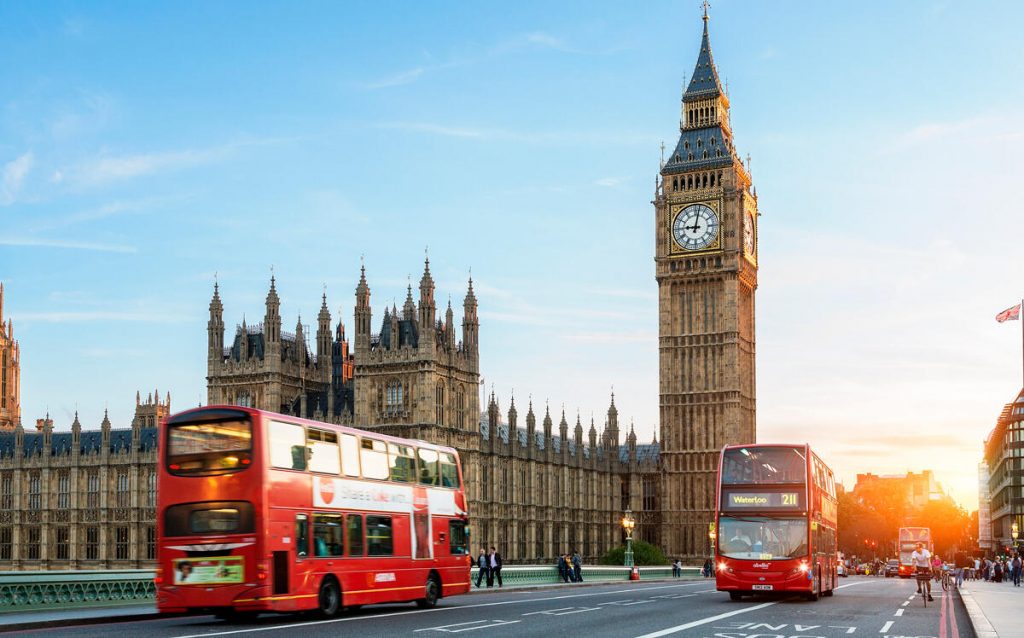
London
England, home to the greatest mix of iconic sights and all kinds of hidden gems, has abolished ALL entry restrictions for visitors regardless of their vaccination status.
“All remaining Covid travel measures, including the Passenger Locator Form and tests for all arrivals, will be stood down for travel to the UK from 4 am on 18 March,” tweeted, Transport Secretary, Grant Shapps.
That means travelers are no longer requested to present pre-departure or post-arrival Covid tests or quarantine.
Heathrow Airport has also removed the requirement to wear masks, and a number of airlines have followed suit.
Romania
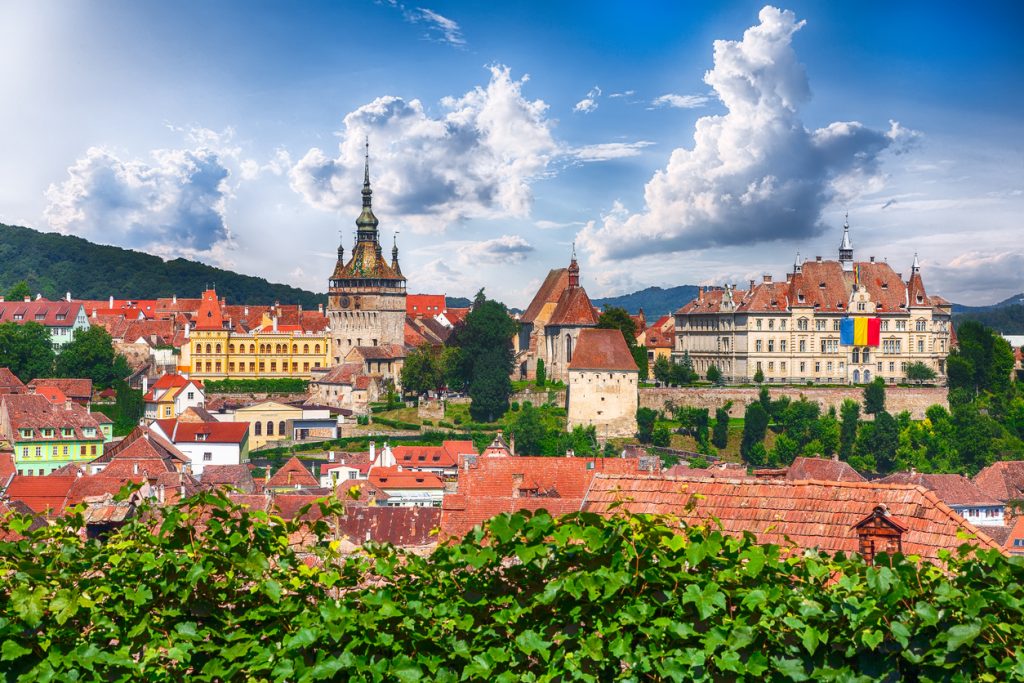
Transylvania, Romania, Europe
Home to stunning snow-capped mountains, green woods, vineyards as well as Black Sea beaches, Romania is now open for tourism without any Covid-19 restrictions.
As of March 9, visitors will no longer require a Green Pass to enter the nation or patronize indoor establishments.
The obligation for unvaccinated tourists to submit a negative Covid-19 test before departure and after arrival has also been removed.
Visitors to Romania still need to complete the Passenger Locator Form (PLF), but it does not include any Covid-19-related questions.
Ireland
Those heading to the countless festivals in Ireland are no longer subject to Covid-19 entry restrictions.
“There are no post-arrival testing or quarantine requirements for travelers to Ireland. Travel carriers will not ask to check a PLF receipt prior to traveling to Ireland,” the Irish government said in a statement.
“Any individual that develops Covid-19 symptoms while in Ireland should follow the HSE (Health Service Executive) guidance in relation to isolation and undertaking antigen or PCR testing as appropriate,” the Irish government pointed out through a statement.”
Keep in mind that passengers visiting Northern Ireland must still adhere to all UK travel regulations.
Hungary
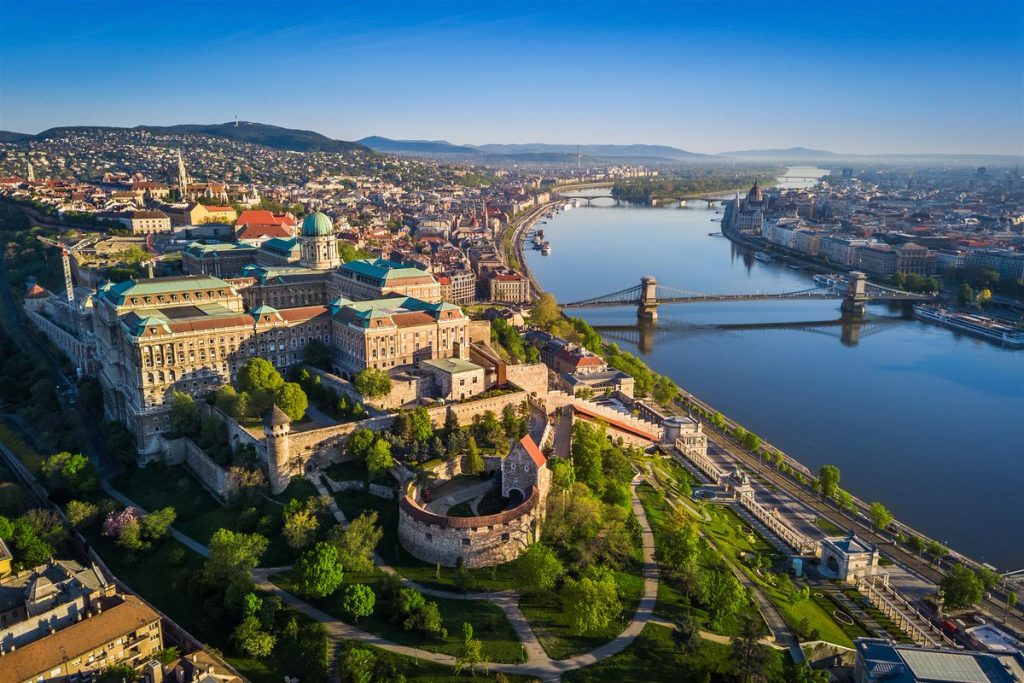
Hungary
Inbound travelers to Hungary no longer need to show proof of vaccination or recovery certificate to enter the country.
They are also exempted from submitting a negative Covid-19 test result prior to departure as pandemic restrictions have been removed.
On March 4, the government published decree No.77 of 2022 confirming that most Covid-19 measures established during the last couple of years are no longer in effect.
“It is possible to enter the territory of Hungary by public road, railway, water and air traffic – regardless of citizenship and protection against the coronavirus –, but other general conditions of entry (e.g. a valid travel document) must be provided.”
Jordan

Jordan, Petra
This amazing country, dubbed “an open-air museum,” is open for tourism and has removed pre-departure and post-arrival testing as well as proof of vaccination for foreign visitors, as of March 1.
Regardless of vaccination status, all travelers to Jordan must register on the Gateway2Jordan platform site and follow the Jordanian government’s guidelines.
Most visitors need a visa to enter Jordan. Click here for additional information on visa requirements.
Bahrain
This island nation has removed PCR testing and quarantine for all overseas visitors, regardless of vaccination status, as of Feb. 20.
Vaccinated visitors are eligible to obtain a ‘Vaccination Certification Card’ on arrival which allows them to use indoor public services while in the country.
To receive the card, travelers must provide a vaccination certificate with a QR code unless it was issued in the United Kingdom, the United States, the European Union, Switzerland, Canada, Australia, New Zealand, South Korea, Japan, Singapore, or Israel.
Even if Bahrain does not, some airlines may demand customers to be vaccinated. It is highly recommended to check with your airline before purchasing your tickets to Bahrain.
Switzerland
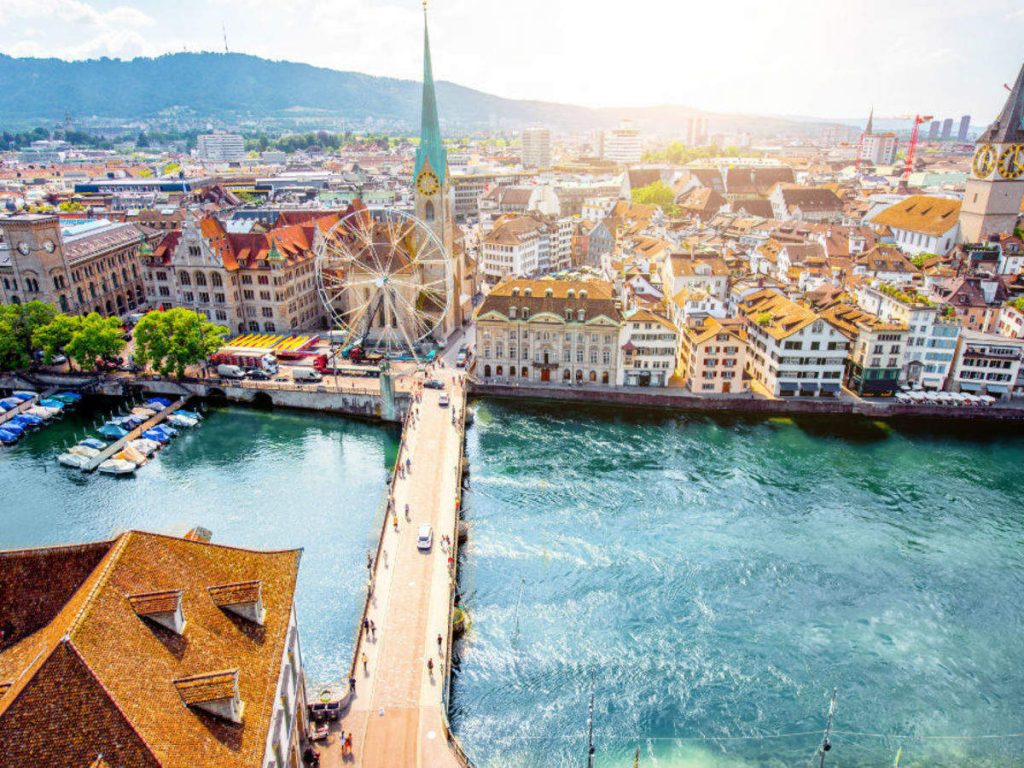
Switzerland removed all COVID-19 entry restrictions as the government no longer believes that a second wave of Omicron infections would overwhelm the healthcare system.
“Health-related measures for persons entering the country are to be lifted. It will no longer be necessary to provide proof of vaccination, recovery or a negative test or complete an entry form,” the Council announces.
Visitors still need to wear a face covering when taking public transport or while visiting healthcare facilities.
Travelers who test positive for COVID will be required to quarantine for five days.
Norway

Travelers no longer need to present a vaccine certificate or proof of a negative COVID-19 test to enter the country, said the Norwegian Prime Minister Jonas Gahr Støre.
The obligation to complete a digital registration form prior to arrival has also been removed.
“We can ease the measures because omicron does not cause as serious a disease as previous variants. Even though the infection is rising, the proportion who end up in hospital is low. We are well protected with the vaccine,” said Støre.
For the time being, travelers should be aware that testing rules for traveling to Svalbard remain in effect.
Costa Rica
[No test, No Quarantine, No Vaccine]
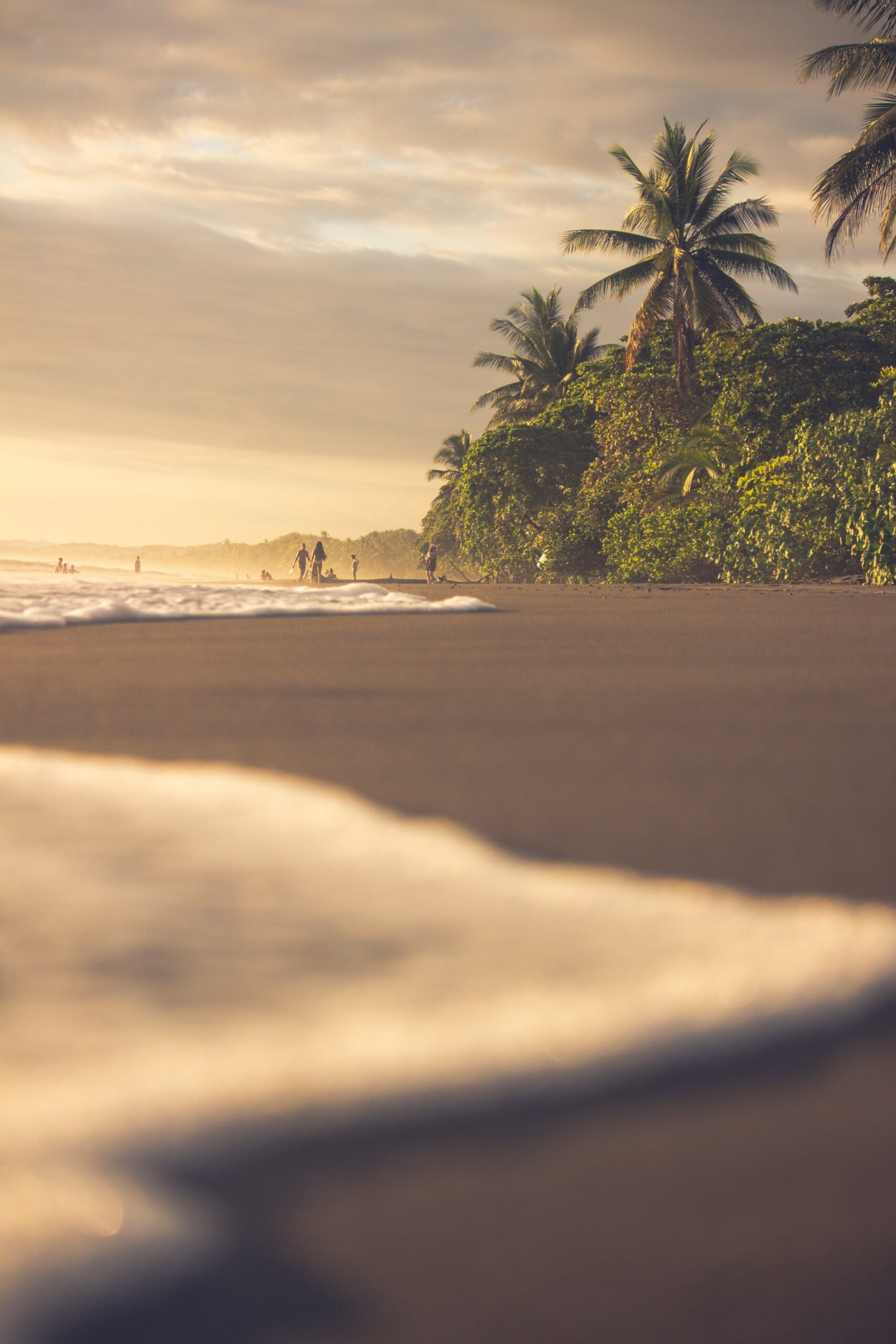
This Central American country has been open for tourism without restrictions since August 1, 2020.
Traveler no longer need to present a negative COVID-19 test . However, unvaccinated arrivals must present proof a medical insurance that covers medical treatment in the case of a COVID-19 infection in the amount of USD 50,000.
All visitors must also complete an online Health Pass 48 hours prior to travel to Costa Rica.
Mexico
[No test, No Quarantine, No Vaccine]
Mexico does not require a negative COVID-19 PCR test or quarantine for entry and all countries are welcome to visit.
The US Centers for Disease Control and Prevention has moved Mexico’s travel advisory rating from Level 3 (“high” risk for Covid) to Level 4 (“very high” risk).
Dominican Republic
[No test, No Quarantine, No Vaccine]
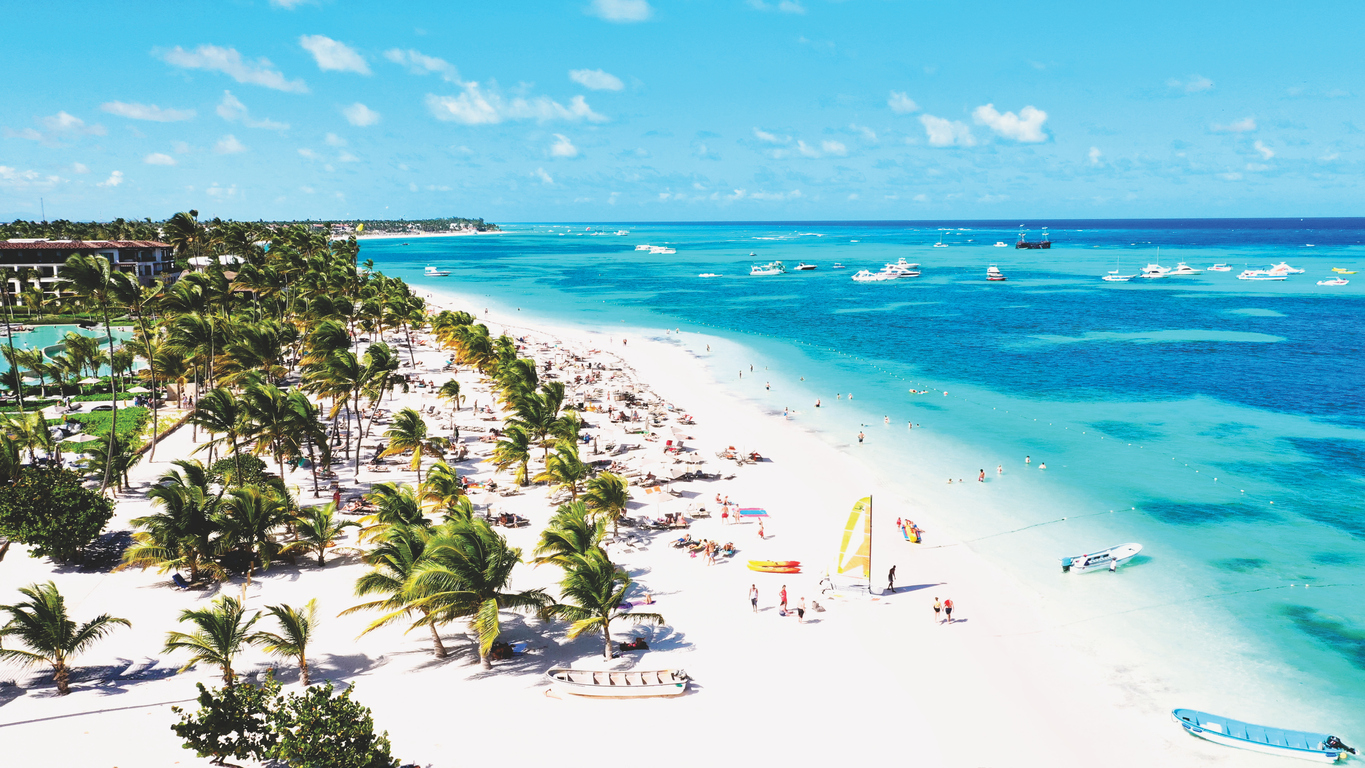
Aerial view of a beautiful Caribbean beach in Punta Cana, Dominican Republic
The Dominican Republic only requires its visitors to agree to random COVID-19 rapid tests upon arrival in case travelers feel unwell.
Visitors must be aware of the strictly enforced curfew that goes from 6 pm to 5 am (with a grace period for movement until 9 pm.)
El Salvador
[No test, No Quarantine, No Vaccine]
The Government of El Salvador lifted all COVID-19 related entry restrictions such as a negative COVID-19 test, proof of vaccination, or health insurance, on November 17, 2021.
To minimize issues at their departure airport, travelers should confirm with their airlines that they understand and have implemented the changes.
Croatia
[No test, No Quarantine, No vaccine]
Croatia removed all border crossing restrictions. This means that travelers from the US and other non-EU countries no longer need to present proof of a negative Covid-19-test or certificate or proof of vaccination for entry to Croatia.
Maldives
Water sport and beach lovers will no longer be required to submit a PCR Covid-19 test upon arrival.
Furthermore, the requirement to wear a facial covering in most indoor settings has been scrapped.
“Wearing masks is now optional, except in hospitals and health care centers, and should the COVID-19 positivity rate go above 20% in any island,” said Maldives’ president, Ibrahim Mohamed Solih.
Hungary
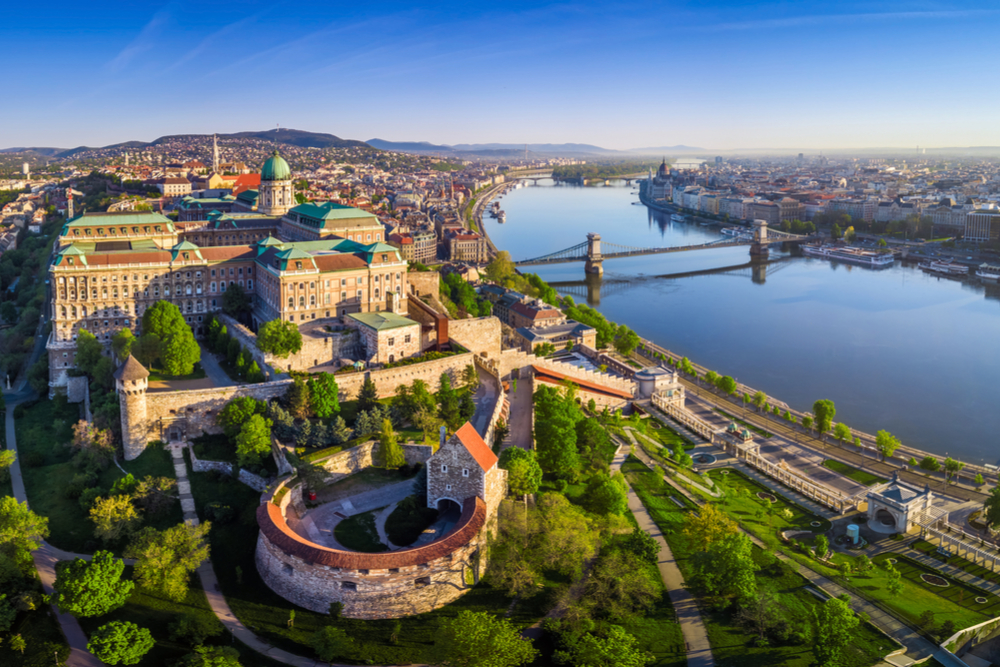
Budapest, Hungary
Hungary has ditched all domestic COVID-19 restrictions for locals and tourists. Although some health experts have expressed concerns about it, the administration has firmly expressed its rejection to reintroduce any mandatory COVID-19 measures.
For instance, wearing a face mask is not mandatory even in public transportation.
“[Our] services are a safe choice for everyday travel, as regularly disinfected vehicles -as several national and international studies have shown- people have a much lower risk of getting sick than in public spaces where people spend long periods of time,” said the Center for Budapest Transport (BKK).
Hungary visitors only need to present a PCR test if entering the country via air. Quarantine or proof of vaccination is not required.
Albania
Albania is one of the countries in the world that does not require a test, vaccine, or quarantine for people to visit it.
The new entry policy took effect on May 1.
Bulgaria
Bulgaria has reopened its doors to all visitors regardless of the vaccination status. Proof of recovery or of being fully vaccinated is no longer needed.
Sweden
Travelers entering Sweden no longer need to present the EU Digital COVID Certificate or a similar certificate demonstrating that they have been vaccinated against COVID-19, tested negative within 72 hours of arrival, or recovered from COVID-19 in the previous six months.
Portugal

Portugal has removed all Covid entry requirements for travelers, both vaccinated and not.
Fully jabbed arrivals no longer need to provide proof of vaccination as of July 1, and the requirement for testing has also been eliminated for individuals who have not received a vaccine.
“Under this new regulation, airlines and passengers are no longer subject to the restrictive measures that applied to air transport in the fight against the pandemic caused by the Sars-CoV-2 virus, which lasted until June 30, 2022,” it says.
South Africa
The South African government has decided to lift all remaining Covid restrictions after the Presidential Coordinating Council and Cabinet decided they had served their purpose and were no longer needed.
For travelers, the most significant change is the lifting of vaccination and testing requirements for entry into South Africa.
“Today is a very historic day as we have reached a turning point since the outbreak of Covid-19 in the world and in the country,” Health Minister Dr. Joe Phaahla said in an official statement.
Italy
Travelers to Italy no longer need to present proof of vaccination or test negative for Covid-19 to be permitted entry.
“From June 1st stop green pass for entry into Italy. The ordinance of the Minister of Health which provides for the Green Certification Covid-19 (green pass) to enter Italy expires on May 31. The measure will not be extended,” the statement of the Ministry reads.
Georgia
According to the decree of the Government of Georgia No. 322 “On Approving the Rules for Isolation and Quarantine” dated May 23, 2020., from June 15, 2022, all Georgian nationals and international visitors no longer have to present proof of a Covid-19 vaccine or a negative test to enter the country.
Australia
Visitors to this country no longer need to submit a Digital Passenger Declaration or Maritime Travel Declaration when entering Australia.
They do not have to declare or provide proof of their vaccination status as of 12:01 am AEST on July 6, 2022, say the government.
“This is great news for families coming home from school holidays who now don’t need to use the DPD [digital passenger declaration],” O’Neil said.
Countries With Easy Entry Restrictions
Most countries are reopening their borders for international travel but entry restrictions vary from testing or no testing, quarantine or no quarantine, and even vaccination status. Find out which countries are open with only 1 or 2 entry requirements.
Colombia
[No test, but vaccination card]
Effective Dec. 14, all international arrivals 18 years and over must present a vaccine certificate to be allowed entry.
When passing through Colombian Immigration, travelers should be prepared to provide an original physical vaccination card or digital certificate.
After almost 2 years without entry restrictions and almost no restrictions, Colombia has started to request everyone to present a COVID-19 Vaccine Passport to access stadiums, cultural events, bars, and restaurants from Nov. 16.
The country has been ranked as “Level 4: COVID-19 Very high risk of transmission” by the CDC.
The United States of America

Central Park, New York
The United States reopened for tourism on November 8.
A negative COVID-19 test taken within 24 hours before departure and proof of vaccination is all tourists need to be permitted entry.
The best part is the U.S. accepts multiple types of tests, from (RT-PCR) to (RT-LAMP), (TMA), (NEAR), and (HDA) tests. But if it sounds too complicated, a self-test a.k.a home test is also enough!
Check the specific requirements for home tests.
The US has barred travel from multiple African nations, including Botswana, Zimbabwe, Namibia, Lesotho, Eswatini, Mozambique and Malawi.
Tanzania

Serengeti National Park, Tanzania
One negative COVID-19 test is all travelers need to be allowed to visit Tanzania and its Serengeti National Park.
The government only requires visitors to present a COVID test taken within 72 hours before arrival and to fill out an online Health Surveillance Form within 24 hours before entering the country.
Once visitors complete the form they will receive a Unique Health Code (UHC), which they must present to health officials at the airport.
No quarantine is needed!
Montenegro
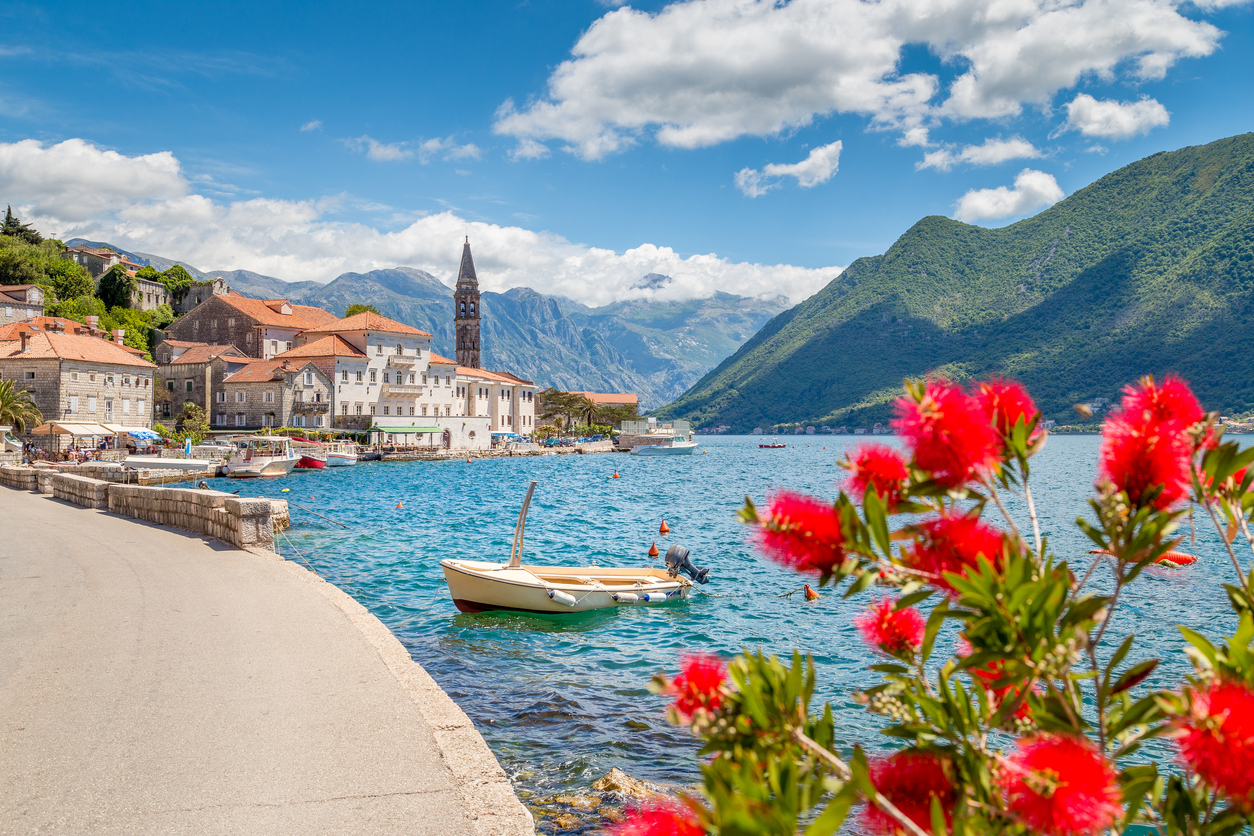
For the time being, visitors will need to present proof of being fully vaccinated issued by a registered health care institution. The last dose must not be more than six months prior to entry.
A negative PCR test not older than 72 hours or a positive PCR or a rapid antigen test older than 10 days, and not older than 6 months also is also needed.
Panama
Visitors from all countries are welcome to visit Panama without quarantine or vaccination restrictions. To be permitted entry, travelers only need to present either a negative COVID-19 PCR test or an antigen test, which is certainly cheaper and easier to get.
Visitors can also arrive in Panama without a test and take one at the airport. This is a convenient option but it’s not very recommended because in case they tested positive for COVID-19 they would need to quarantine.
Also, all visitors must complete and sign an electronic sworn affidavit prior to check-in. But that would be all.
Egypt

Credit: Amazon
Tourists are allowed entry only by presenting a PCR or a serology COVID-19 test. Proof of vaccination is not required and there’s no mandatory quarantine.
Long-haul travelers from Japan, China, Thailand, United States, South America, Canada, London Heathrow, Paris, and Frankfurt are permitted to bring a test certificate performed 96 hours prior to their flight departure.
People traveling to Sharm El Sheikh don’t even need to arrive with a PCR test. They can take it upon arrival.
Egypt has also imposed travel bans on Southern African nations.
Ecuador

Ecuador is open to most visitors and only requires a PCR test taken 3 days prior to arrival to allow them in.
Also, visitors who have received both doses of a COVID-19 vaccine 14 days prior to the flight date can enter the country without having to present the PCR test.
Galapagos
The internationally celebrated islands reopened for tourism on July 1.
Commercial flights resumed operations on August 3. To enter the islands passengers will be requested to bring either a PCR test or proof of vaccination.
Denmark
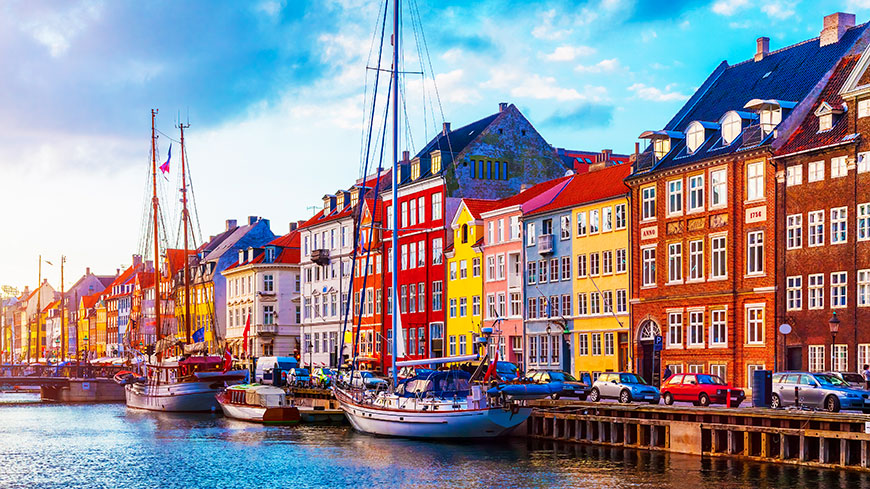
Starting Feb. 8, 2022, all COVID related entry restrictions will be lifted when entering from another EU/EEA country + Switzerland.
The rest of the world will have to wait until Mar. 31, 2022, to benefit from the same policy.
Spain
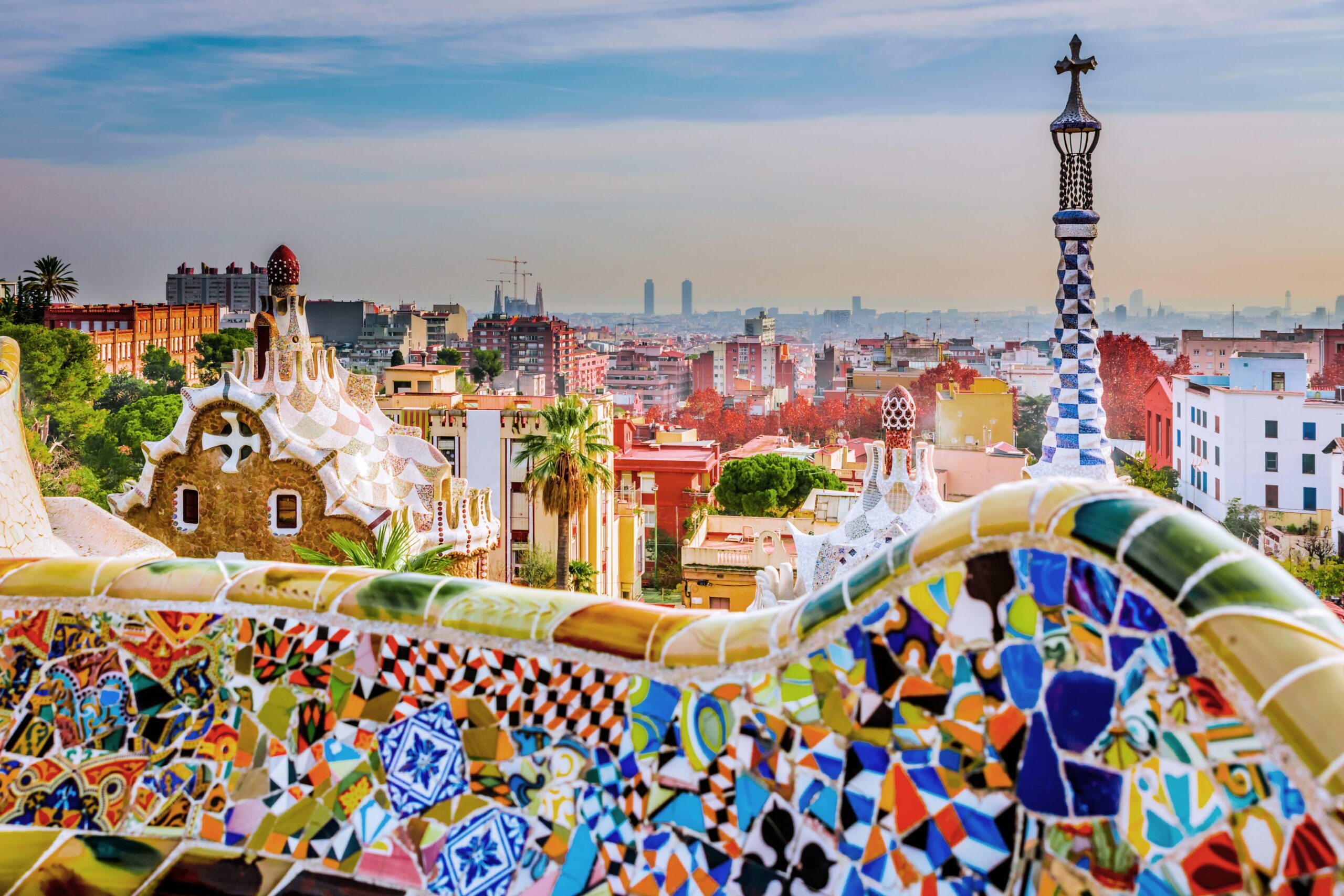
Barcelona, Spain – Photo, CNN
Fully vaccinated travelers are welcome to Spain without quarantine restrictions. This includes not only EU visitors but also Americans and even some South American countries.
The Spanish Government has banned unvaccinated UK British tourists. The new regulation applies to all tourists excluding children under the age of 12 years old.
All arrivals regardless of their nationality or age must complete a Health Control Form to obtain a QR code generated through the Spain Travel Health portal. It will be needed to board aircraft and to pass health controls on arrival in Spain.
Most Spanish “Comunidades Autómas” or states now request people to bear a COVID-19 Vaccine Passport to access restaurants, bars, and similar venues.

Vinicunca, the 7-color mountain, Peru
From Machu Picchu to the Inca Trail to one of the most luxurious train trips in the world, Peru is open for tourism and has dropped most of its entry COVID-19 restrictions.
To be granted access, foreign tourists 12 years of age or older are required to present either proof of vaccination or a negative PCR test. The quarantine upon arrival has been lifted.
Everyone should also fill out an affidavit of health, and that’s all, you’re in.
Countries and Places Dropping All Covid-19 Domestic Restrictions
Those eligible to visit these countries or territories will be shocked to notice how life looks quite similar to pre-pandemic times. Check them out!
California, USA

Yosemite National Park, California
With one of the nation’s highest vaccination rates and lowest case rates, California is open to welcome visitors.
The state scrapped the color-coded tier system that restricted limited capacity for nightclubs, bars, restaurants, and other venues.
Visitors can now enjoy temperatures of around 70℉ wherever they go without most of the limiting Covid-19 restrictions.
The state’s mask mandate as well as the social distancing restrictions have been lifted for vaccinated visitors, allowing most businesses to resume normal outdoor and indoor activities.
Officials in Los Angeles and the Bay Area are currently discussing lifting the rest of the Covid restrictions as transmission in their regions plummeted.
Florida, U.S.
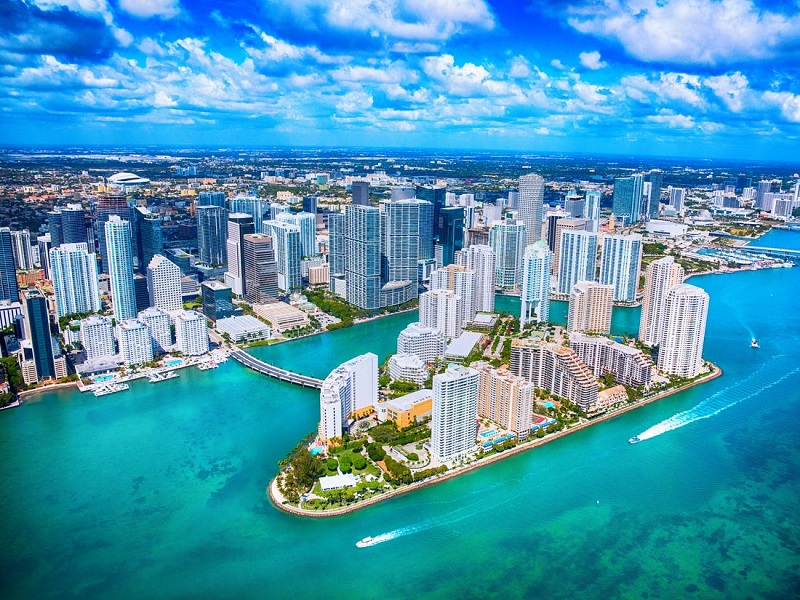
The United States is not only listed here as a country with easy entry requirements but also it has states the size of European countries where Covid-19 restrictions virtually do not exist or are even forbidden.
In Florida, for instance, people can freely walk around or enjoy inside establishments without wearing a mask or keeping social distancing. This is not only permitted but protected by Gov. DeSantis’s administration.
I Traveled to Cartagena During COVID-19 — Here’s What It Was Like
I got to immerse myself in a new culture and explore hidden gems, even during the pandemic.
Rondel Holder is a travel writer, content creator, and filmmaker who has visited over 60 countries. In 2012, he launched Soul Society 101, a travel community that amplifies the voices of Black travelers. He has been featured in The New York Times, New York Daily News, and more.
:max_bytes(150000):strip_icc()/cartegena-covid-COL0621-2000-8f6b975bdc3d449788cd2551077b600f.jpg)
During the course of the COVID-19 pandemic, I was lucky enough to travel to a handful of destinations for some time to relax and recharge, but on my latest trip, I was looking for something more.
When I set out to visit Cartagena, Colombia in April, it was my first time back to traveling the way I used to pre-pandemic. Well, not 100% back – I still wore masks, practiced social distancing, and took proper precautions – but it was my first time since COVID-19 that I was visiting a new country with plans to fully explore, connect with locals, and immerse myself in new experiences every day.
The beautiful city of Cartagena is as rich in vibrant color as it is in history and did not disappoint the culture seeker in me who was ready to connect with a world I wasn’t familiar with. The electric energy of the city was fueled by the welcoming locals who were grateful for my visit, especially during the pandemic, when so many of their businesses have been suffering.
Here’s what it was like to visit this South American gem.
Pre-travel Process
Colombia requires physical proof of a negative COVID-19 PCR test taken within 96 hours before departure. Results will be checked by the airline before boarding in the U.S. and by customs upon landing. If travelers do not take a COVID-19 PCR test prior to flying, they may take one upon arrival, but will then be subject to isolation until negative results are obtained or can opt for 14-day isolation.
Within 24 hours of flying, visitors are also required to fill out an immigration form that asks basic travel information as well as a few COVID-19 related questions. The form is required to be completed within 24 hours of leaving the country.
Getting to Cartagena
There were several direct flight options from New York City to Cartagena. Located in the northern part of South America, the flight time, typically around 4 hours and 40 minutes, is surprisingly shorter than to some eastern Caribbean islands. Masks are required at all times throughout JFK International Airport and Rafael Núñez International Airport.
Social distancing is prompted by floor markers and signs throughout both airports. Upon landing at CTG, my temperature was taken and I was asked to sanitize my hands. The customs process was simple and straightforward and I was on my way to the hotel within about 15 minutes.
Current Restrictions
Mask wearing and social distancing is required in all public areas except while seated to eat and drink, or at the pool and beach. The city was very much alive and open, with the streets of popular areas like The Walled City and Getsemaní full of locals and visitors. Popular restaurants, bars, and attractions require reservations to maintain set capacities throughout the day.
While Cartagena had no curfew during my visit, we were told that Colombia’s capital, Bogota, had just implemented a curfew. As cases of COVID-19 continue to fluctuate, it is important to check the latest, most up-to-date information on Colombia’s official tourism website.
Experience While Traveling
I opted to stay in the Walled City of Cartagena, an area filled with history, brightly painted buildings, cobblestone streets, and an abundance of floral archways at every turn. Just walking around this area is an experience in itself — with amazing people-watching — along with so many amazing restaurants, rooftop bars, and shopping options within a 10-minute walk.
Although this is where I felt the strongest buzz of city life, there are countless options for day trips to take for a change of scenery.
There are several beaches in Cartagena that visitors and locals enjoy, however, many drive outside city limits or charter a boat to experience either more secluded beach experiences or beaches with pristine water. Because the city of Cartagena is hugged by the Caribbean sea, there are beaches that boast cerulean and turquoise waters with powdery white sand shores, like the popular Playa Blanca in Isla Baru, which is about an hour and a half drive from Cartagena.
Within a five-minute drive from Playa Blanca is the lesser-known but fascinating Aviario Nacional de Colombia, a bird park and conservation that is home to over 190 species of birds and over 2,000 specimens. Flamingos, hawks, eagles, toucans, woodpeckers, and more are exhibited in staged environments that reflect their natural habitats throughout Colombia (desert, coast, rainforest/tropical, swamp) showcasing the biodiversity of the region. The one-way walking path through the aviary is about two hours on average.
As for its local population, Cartagena and the surrounding regions are about 30% Black or Afro-Latino. Many Black people in Colombia live in palenques, communities that were created as Black Colombians sought refuge from slavery in the city limits. San Basilio de Palenque is one of the largest and most popular palenques about an hour outside of Cartagena city proper. Here, visitors can learn about the long and still-existing Afro-Colombian history where many locals speak a language that is rooted in Bantu (a language spoken in several central and west African countries), practice traditional ceremonies, dance, religions and more.
For my first time back out in the world with the intention to truly explore again, Cartagena was a great reminder of what it felt like to travel pre-pandemic. The rush of adrenaline that comes with new adventures, eyes widening with curiosity, and the readiness to encounter an endless well of possibilities all returned. Although I don’t know if travel for me will ever be as carefree as it once was, Cartagena offered the opportunity to fully indulge again and has me looking forward to more culturally immersive experiences even further from home.
6 safer, expert-backed vacation ideas during the pandemic, whether you’re taking a last-minute spring break trip or planning ahead for summer
Email Twitter icon A stylized bird with an open mouth, tweeting.
Snapchat Fliboard icon A stylized letter F.
Flipboard Pinterest icon The letter “P” styled to look like a thumbtack pin.
Pinterest Link icon An image of a chain link. It symobilizes a website link url.
When you buy through our links, Insider may earn an affiliate commission. Learn more.
- Despite the pandemic, many US travelers are eager to take a vacation, but safely.
- For safer vacation ideas during COVID, we compiled options based on expert advice and research.
- From remote hotels near beaches to private vacation rentals and road trips, consider these ideas.
Sign up for our newsletter to get honest reviews on top products & services — delivered weekly to your inbox.
With 1 in 6 Americans now fully vaccinated against COVID-19 and the CDC saying that travel is safe for vaccinated individuals, it’s expected that travel will return in a big way.
Indeed, Dr. Thomas Russo, chief of the division of infectious disease at the University at Buffalo, told Insider that if you’re fully vaccinated, “flying, travel, and life, in general, is significantly safer.”
But that doesn’t mean you’re totally in the clear. “The vaccines are very good, but they’re not perfect. While you’re much less likely to transmit the disease or get it, there is still a chance,” says Dr. Russo. The CDC still advises that vaccinated individuals continue to wear masks in public and are not considered fully vaccinated until two weeks after their final dose.
At that point, if you are wondering if it is safe to travel right now, the answer depends on variables such as how you plan to travel, where you want to go, the rates of infection in your destination, and your behavior once you arrive.
To help determine the risks associated with each mode of travel during COVID, we reached out to experts including infectious disease and ER doctors, cleaning specialists, travel industry professionals, and representatives from major rental cars, hotels, Airbnb, and transportation organizations.
From beaches and mountains to lakes and islands, the following list includes close to home vacation ideas during coronavirus. Just be sure to plan in advance: we’re already seeing fully booked hotels and Airbnbs, rental car shortages, and full flights. If you want to travel this summer, here’s what you can expect, plus great travel deals to help beat the rush.
If you do want to take a safe vacation during COVID and are seeking safer vacation ideas, think road trips over international flights, and lodging such as private vacation rentals or hotels with stringent COVID policies. In fact, both Airbnb and Vrbo have seen an uptick in bookings and domestic vacation rentals will continue to be popular in 2021.
Here are 6 ways to take a safe vacation during COVID:
Book a socially distant hotel stay
If you do want to take a safe vacation during COVID and are seeking safer vacation ideas, look for hotels with stringent COVID policies that include wide-reaching new cleaning protocols made in combination with health experts. These focus on social distancing and contact-free transactions such as virtual check-in and out, digital keys, spaced out or limited dining, and more.
However, the experts we interviewed still feel that the answer to the question ‘Are hotels safe during coronavirus’ is subjective and depends on whether an individual also takes proper protective measures like wearing a mask, distancing, and disinfecting.
If you swear by staying in hotels, make sure the property has announced rigorous new cleaning measures, and look for signs they are implementing such procedures, from check-in to common spaces like the elevator or pool, and of course, in your room. Some are even promoting COVID-friendly WFH — work from hotel — travel deals aimed at the socially distant traveler. Also, consider more remote properties with plenty of wide-open spaces and outdoor-friendly amenities, or smaller boutique hotels.
If you’re worried about flexibility, many hotels are offering more generous cancellation policies right now than usual.
To help facilitate a socially distant hotel stay, the following destinations and hotels all detail new COVID policies and are well-suited for a domestic getaway. Think wide stretches of beaches, remote mountain retreats, idyllic island escapes, and other places that embrace the great outdoors.
Book a private vacation rental to limit interactions with others
After breaking down the risks of both hotels and vacation rentals such as Vrbo or Airbnb, the doctors and experts we spoke with agreed private vacation homes are likely safer than hotels because they come with fewer person-to-person interactions.
“While there is no question hotels are working diligently to keep their hotels clean and sanitized, Airbnb has a huge advantage given that the renter is generally the only one occupying the property,” said Dr. Neil Brown, K Health’s chief diagnosis officer. “With Airbnb’s new Enhanced Cleaning Initiative, the company provides a better option than public hotel spaces,” he said.
Additionally, the CDC’s current lodging guidelines note that private vacation rentals with members of your own household are safer than hotels.
For those who like social distancing of aspect of vacation rentals, but prefer the comforts of hotels, consider in-between options like Sonder or Marriott Homes & Villas, which offer professionally managed vacation rentals with hotel-like amenities.
We detailed everything to know about vacation rentals, from what to know about Airbnb’s new cleaning protocol to the platform’s COVID cancellation policies and Airbnb Plus program, plus key differences between Airbnb and other vacation home rental sites such as Vrbo.
Source https://www.travelinglifestyle.net/countries-without-covid-travel-restrictions-no-test-no-quarantine/
Source https://www.travelandleisure.com/travel-news/visiting-colombia-during-covid
Source https://www.insider.com/guides/travel/safe-vacations-during-covid